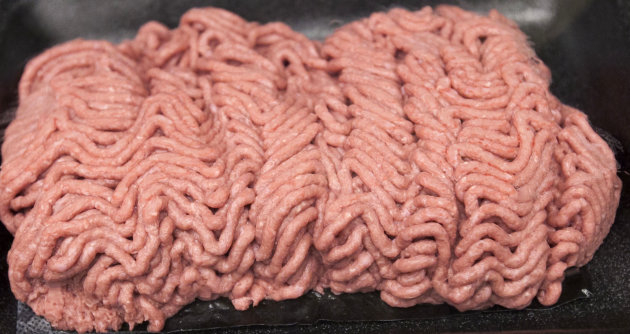Before you bite into that juicy hamburger better take a look at this:
Judge: Iowa State U. must shield 'pink slime' data
Judge blocks Iowa State U. from releasing documents on safety testing for 'pink slime' maker

IOWA CITY, Iowa (AP) -- A judge has blocked Iowa State University from releasing documents about food safety research conducted for the beef-processing company that makes the product dubbed "pink slime" by critics.
District Judge Dale Ruigh ruled last month that releasing the records would damage Beef Products, Inc. by revealing information about its proprietary food-processing techniques. Releasing them also would eliminate revenue that Iowa State laboratories receive from companies, who would go elsewhere for testing if they feared results were public records, he said.
"I think it's in the best interest of the companies that do business in Iowa, the general public, and the university," said attorney John Bickel, who represented BPI.
BPI, based in Dakota Dunes, S.D., filed legal action to block the release of records in 2010 after they were requested by Marler Clark, a Seattle law firm that specializes in food safety. The New York Times later sought the documents.
BPI calls its signature product lean finely textured beef. It is made using a process in which trimmings left after a cow is butchered are heated, lean meat is separated from fat and ammonia is applied to kill bacteria.
http://news.yahoo.com/judge-iowa-state-u-must-150751001.html
Ammonia? You gotta be kidding!!! , ammonia is both caustic and hazardous.
Judge: Iowa State U. must shield 'pink slime' data
Judge blocks Iowa State U. from releasing documents on safety testing for 'pink slime' maker

IOWA CITY, Iowa (AP) -- A judge has blocked Iowa State University from releasing documents about food safety research conducted for the beef-processing company that makes the product dubbed "pink slime" by critics.
District Judge Dale Ruigh ruled last month that releasing the records would damage Beef Products, Inc. by revealing information about its proprietary food-processing techniques. Releasing them also would eliminate revenue that Iowa State laboratories receive from companies, who would go elsewhere for testing if they feared results were public records, he said.
"I think it's in the best interest of the companies that do business in Iowa, the general public, and the university," said attorney John Bickel, who represented BPI.
BPI, based in Dakota Dunes, S.D., filed legal action to block the release of records in 2010 after they were requested by Marler Clark, a Seattle law firm that specializes in food safety. The New York Times later sought the documents.
BPI calls its signature product lean finely textured beef. It is made using a process in which trimmings left after a cow is butchered are heated, lean meat is separated from fat and ammonia is applied to kill bacteria.
http://news.yahoo.com/judge-iowa-state-u-must-150751001.html
Iowa State gathered 1,650 documents in response but declined to release them after BPI filed a petition for an injunction. BPI argued that the records were exempt from Iowa's public records law because they involved trade secrets, and that Dickson was acting as a private consultant, not a public employee. Its petition said Dickson performed testing on different pathogens to study "the integrity of existing BPI patented processes" and alternatives.
Ammonia? You gotta be kidding!!! , ammonia is both caustic and hazardous.











